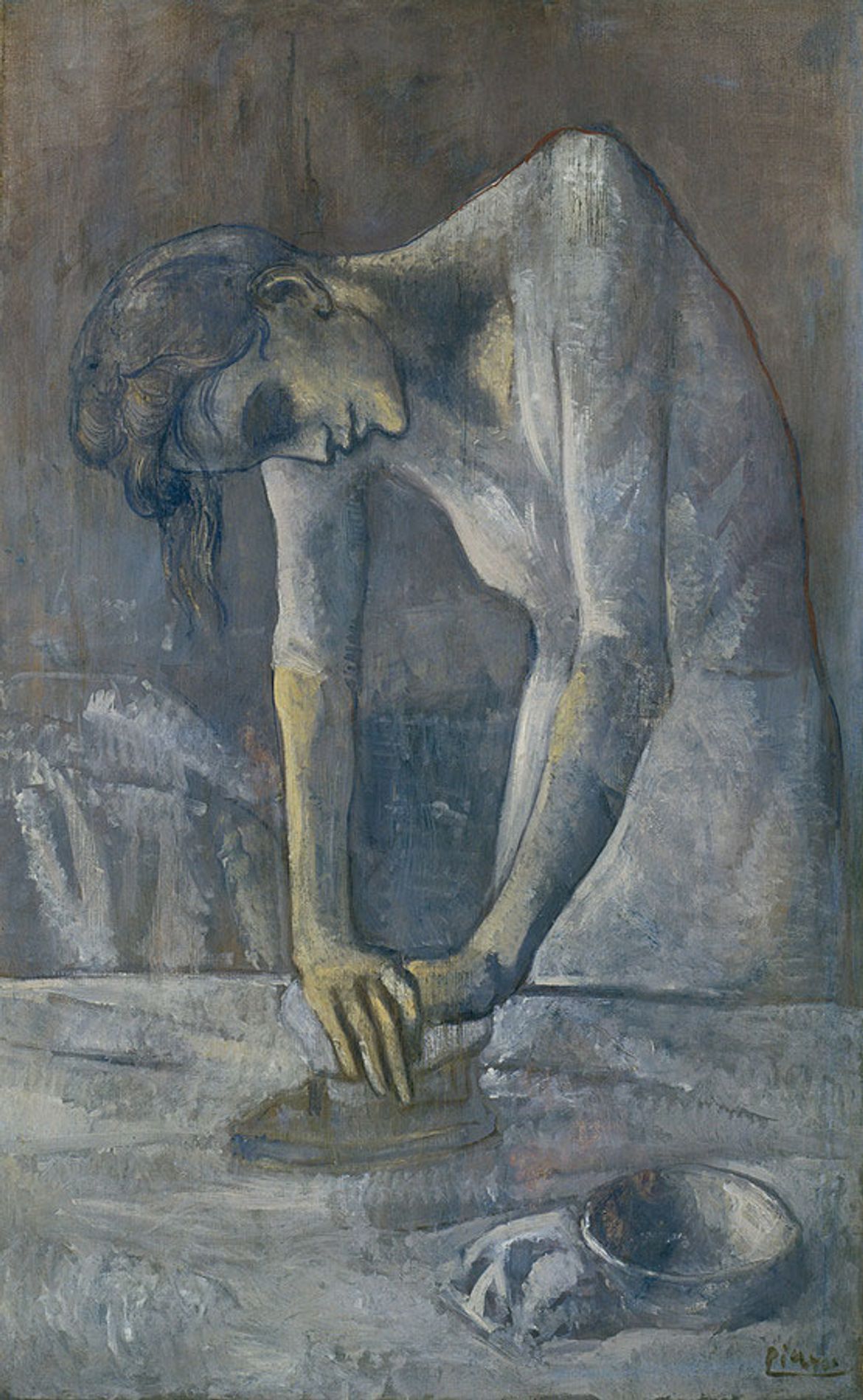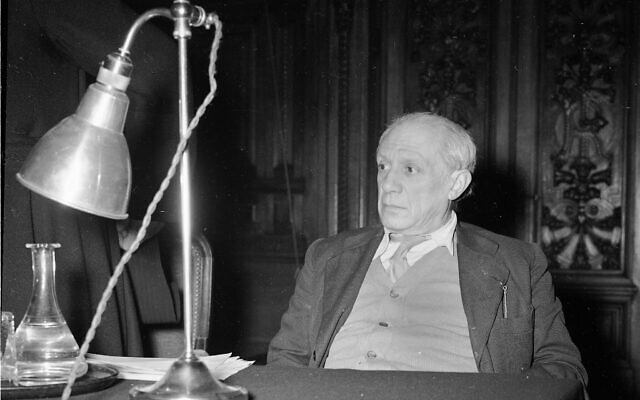The Jewish descendants of an owner of a $200 million Picasso painting who sold it before fleeing Nazi Germany have launched a lawsuit against the Solomon R. Guggenheim Museum in New York, demanding the artwork be returned to its rightful owners.
The painting in question — Pablo Picasso’s 1904 “Woman Ironing” — has been hanging at Guggenheim Museum since 1978, according to Art Forum magazine.
It was purchased by a German Jew named Karl Adler in 1916 from an art gallery in Munich. In 1938, fearing the rise of Nazism in Europe, Adler sold it back to the gallery for about one-ninth of its value and used the money to escape his homeland.
Now, several of his descendants, including his great-grandson Thomas Bennigson, are seeking justice, saying that the sale was only carried out as part of “a desperate attempt to raise cash needed to flee,” according to the lawsuit filed earlier this month at the New York County Supreme Court.
The suit claims Adler was under extreme pressure to sell the painting due to the 1935 antisemitic Nuremberg Laws and Nazi Germany’s “flight tax,” which would have stripped him of his belongings upon leaving the country.
Get The Times of Israel's Daily Edition by email and never miss our top stories
The sale fetched Adler $1,552 (roughly $32,000 today), which the suit says is proof that it was made under duress.

An undated photo of the Solomon R. Guggenheim Museum in New York (©Silman via AP)
Adler’s descendants eventually relocated to Buenos Aires and only learned about the painting in 2014. By then, the painting had moved from museum to museum, eventually arriving at the Guggenheim in 1978.
The family first contacted the museum in 2017 and in 2021 demanded the painting’s return under the 2016 Holocaust Expropriated Art Recovery Act.
“Adler would not have disposed of the painting at the time and price that he did, but for the Nazi persecution to which he and his family had been, and would continue to be, subjected,” the suit reads.

Pablo Picasso, “Woman Ironing,” 1904. (Estate of Pablo Picasso/Artists Rights Society (ARS), New York; via Solomon R. Guggenheim Museum, New York)
The Guggenheim Museum has said that while it “takes provenance matters and restitution claims extremely seriously,” the suit was “without merit.”
The museum claimed that it had tried to contact Adler’s son, Eric Adler, as well as other family members in the 1970s but that none expressed concern or interest in the painting’s ownership.
“It is unclear on what basis claimants—more than 80 years after Adler’s sale of ‘Woman Ironing’—appear to have come to a view as to the fairness of the transaction that neither Karl Adler nor his immediate descendants appear to have ever expressed, even when the Guggenheim contacted the family directly to ask,” said museum spokesperson Sara Fox in a statement.
“The facts demonstrate that Karl Adler’s sale of the painting to Justin Thannhauser was a fair transaction between parties with a longstanding and continuing relationship. The Guggenheim believes the outcome of the present court action will confirm that it is the rightful owner of ‘Woman Ironing,’” the statement read.

Artist Pablo Picasso sits on the stage at the theater of the Sorbonne University during a conference on his work, Feb. 2, 1946, in Paris. (AP Photo/Jean-Jacques Levy)
“Woman Ironing” by Picasso “is a celebrated demonstration of the sensitivity, skill, and emotion with which [the painter] depicted the working poor,” according to the painting’s description on the Guggenheim Museum’s website.
“The painting’s melancholy surface palette of whites and blue-grays evokes empathy for the hard, labor-intensive daily life of the subject—a life Picasso experienced himself during his first years in Paris, when ‘Woman Ironing’ was painted.”


